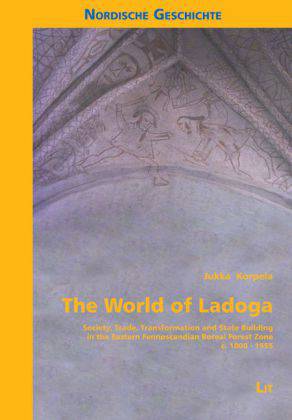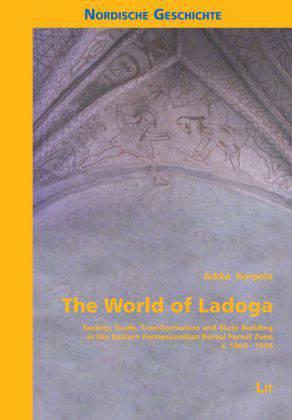
- Retrait gratuit dans votre magasin Club
- 7.000.000 titres dans notre catalogue
- Payer en toute sécurité
- Toujours un magasin près de chez vous
- Retrait gratuit dans votre magasin Club
- 7.000.000 titres dans notre catalogue
- Payer en toute sécurité
- Toujours un magasin près de chez vous
The World of Ladoga
Society, Trade, Transformation and State Building in the Eastern Fennoscandian Boreal Forest Zone C. 1000-1555 Volume 7
Jukka Korpela
39,45 €
+ 78 points
Description
This book is one of the first to focus on Medieval and Early Modern state formation on the north-eastern periphery of Europe. Researchers have traditionally perceived an East-West conflict between Sweden and Novgorod concerning the late medieval colonization of the northern forest areas, but it seems that the East Fennoscandian boreal forest zone was not an unpopulated area at that time, but was a landscape inhabited by heterogeneous hunting and fishing populations and possessing another kind of culture. The ways of life of these populations can be observed by coordinating various bodies of palaeoecological, palaeobotanic, genetic, meteorological, folkloristic, philological and archaeological material. The traditional written sources did not extend to this area, and its nature is only reflected in the expansion and organization of the European Christian culture and power, both Russian and Swedish. Also, the increasing number of source documents, the growing population as reflected in those written documents and the expansion of arable cultivation do not indicate any real colonization but simply a change of the existing economic system from a semi-nomadic hunting and fishing economy to a field-based agriculture in response to the expansion of regular taxation and state control. Seen from this perspective, the people who earlier were invisible gradually become visible in the sources. The East Fennoscandian boreal forest zone was a European periphery during the Viking Age, but was connected to the European exchange of goods through the same waterways that also brought the first Christian cultural impact. The European economic crisis of the 14th Century nevertheless excluded the area from the late medieval process of state formation, and it became an object of both Muscovite and Swedish interests only after the end of the 15th Century. This meant the formation of parishes, the organization of an early local administration with regular taxation, the permanent stationing of military forces, the establishment of a physical border, and the assimilation of the local people into European culture, accompanied by marginalization of the traditional forms of life.
Spécifications
Parties prenantes
- Auteur(s) :
- Editeur:
Contenu
- Nombre de pages :
- 400
- Langue:
- Anglais
- Collection :
- Tome:
- n° 7
Caractéristiques
- EAN:
- 9783825816339
- Date de parution :
- 07-10-08
- Format:
- Livre broché
- Format numérique:
- Trade paperback (VS)
- Dimensions :
- 160 mm x 235 mm
- Poids :
- 703 g







